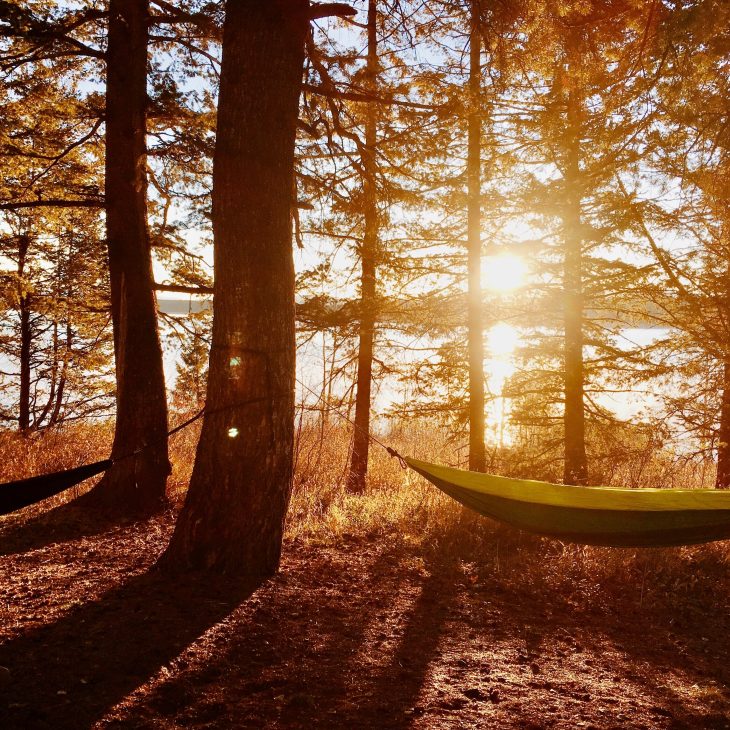IFYC is Closing for a Week – Here’s Why
July 31, 2020

IFYC is taking the week off, from August 3-7. Why? People are at the heart of what we do – and it starts with our team. In these extraordinary times of global pandemic, protest for racial equity, civic unrest, recession, and general anxiety, we have been working hard to meet the moment. It is a privilege and an honor to do so. And as we look to a fall full of unknowns, we are taking the advice of Jen Bailey, IFYC alumna and founder of the Faith Matters Network, taking what she calls a sacred pause.
Growing up, the highlight of my summer was always camp, specifically Camp Tamarack, an American Baptist campground in Waupaca, WI. While the religious diversity of my summer camp consisted of a few Catholics, agnostics and, possibly Lutherans, I have learned that summer camp holds a special place in many hearts across traditions – the songs and practices may be different, but the relationships, identity exploration and star gazing holds true. This too is paused this year amidst Covid-19’s continues spread in the U.S.
Kids may not be going to camp this summer, but imagine with me for just a moment a group of hormonal teenagers in the WI woods for a week. No TV, no radio, just guitars and campfires, flag raising, Bible Study, swimming and canoeing, and worship every morning. Many moments stick with me from camp, but one of the most memorable centers Paul Mayeshiba, a lay church leader and the volunteer director of camp in the 90s (and beyond). Not only is the role unpaid, but full-time professionals take a week off to serve this post. Paul was there because he loves God and he believes in the spiritual formation of young adults.
One morning at Worship we see a tower of cups, stacked in a pyramid shape. Paul takes a pitcher of water and starts pouring into the top cup, eventually spilling over that and subsequent layers of cups, filling each layer below in turn before the water continues onward to the bottom of the stack. His point? One’s cup must be full to be able to give to others. Abundance is possible through caring for one’s self as the beautiful creation each of us is. “Or do you not know that your body is a temple of the Holy Spirit who is in you, whom you have from God, and that you are not your own?” (1 Corinthians 3:16) One’s spiritual practice, self-love and care must be healthy if we want to be of use to anyone else. After all, in the creation story, God too rests. For a young woman who had internalized cultural messages of selfless service, this was a pretty radical notion. In college I came to love Audre Lorde’s wisdom that as a black, lesbian, activist in a world structured to degrade and diminish and even destroy her, her selfcare was not an act of self-indulgence, but indeed an act of political warfare.
In a June Webinar, “Rest and Respite in 2020? Self-care for the Long Game“ with Shakeer Abdullah (Vice President of Student Affairs at Clayton State University), Yael Shy (Senior Director of Global Spiritual Life at New York University and the Founder and Director of MindfulNYU) and Gail Stearns (Irvin C. and Edy Chapman Dean of the Wallace All Faiths Chapel and Associate Professor of Religious Studies at Chapman University), we heard about some of the techniques those leaders used to care for themselves and their communities in these times.
Shakeer, Gail, and Yael agreed that despite the inherent need we all have to rest, opportunities are hard to come by. They discussed the many socioeconomic factors that dictate who has time and space to rest, and that even those who do often struggle with an impulse to be working or an inability to be fully present. Shakeer, Gail, and Yael shared their rest practices with one another and with all of us, in hopes that those who are able may learn to get the rest we all need and deserve. Here are their recommendations, compiled by my colleague, Katherine Obrien.
IFYC’s work in the world is focused on humanity. In many ways this is the messy and beautiful work that artificial intelligence and machine learning can never fully replace. How can we foster environments in which people who come down differently on ultimate concerns still live together in mutual respect? How can we most effectively nurture the skills people need in order to tap into the strengths of a diverse society to create something that no one person or group could achieve on their own? How does a diverse democracy persist through difficult times that shake our foundations, question pervasive stories and public statues, and invite what John Lewis famously called “good trouble, necessary trouble”? In this moment, in this distinctly human work that we are committed to, in partnership with you, we want to honor the human need to rest. We appreciate your understanding as we take a little longer to reply to e-mail and as we pause on adding much new content to Interfaith America.
Share
Related Articles
American Civic Life
American Civic Life
Higher Education



